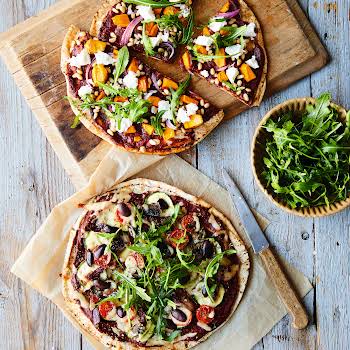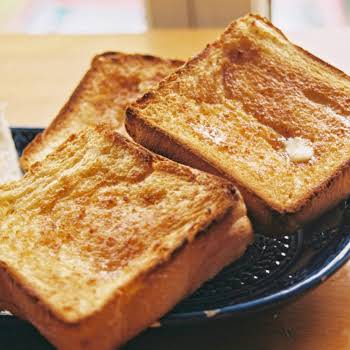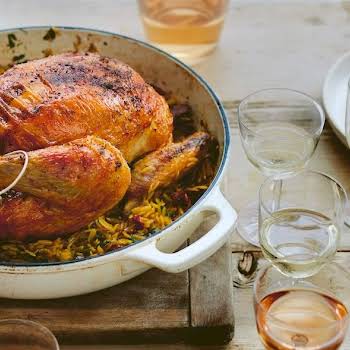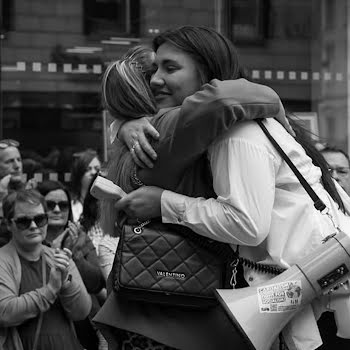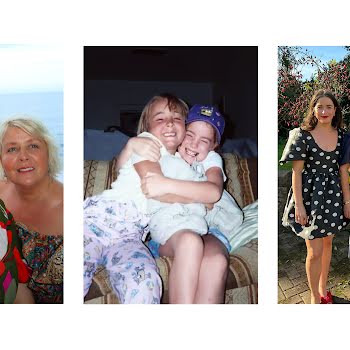
Flipping the metabolic switch? My experience fasting for 5 days
Researchers believe that fasting can now flip a regenerative switch that can boost the immune system, improve brain function and even extend life. But is it the real deal, or should we take studies like these with a pinch of salt?
I’m not one for fads but when I read an article about the benefits of prolonged fasting over intermittent fasting I was intrigued. Imagine eating barely anything for the best part of a week, I sniggered.
But the more I read, the more curious I became. There is now mounting evidence that regular stints of fasting can lower your disease risk, improve brain function and even extend your life.
Doctors have found that these extreme diets can shift the body’s use of energy in ways that can improve your cell health – even inhibiting the growth of pre-cancerous cells.
The science part
The idea is that when we eat, we store some of the energy from our food in the liver as glycogen. After about 12 hours of not eating, our glycogen reserves are low (hello hanger!). With little glycogen left, fat cells release fats into our bloodstream.
These fat cells head for our liver which converts them to energy for our body and brain. We then burn those to allow our body to function and that process releases chemicals called ketones. In the brain, ketones stimulate the release of a very important molecule called BDNF which is responsible for strengthening neurons which can help memory and learning.
‘Depriving your body of the food it needs can often trigger a change’
Studies have shown that a boost in ketone production can improve memory in those with the early signs of dementia within just six weeks. Another three-month study found that those who tried this method also saw a decrease in blood pressure and a hormone called ICF-1 which relates to ageing and disease.
Depriving your body of the food it needs triggers a change. It is believed that it makes your body reprioritise – your cells start to undergo autophagy (they self-devour) starting with the oldest and most damaged. Cells do this process naturally, but it slows down as we age.
Prolonged fasting has been found to stimulate this process — initially studied in mice and now in humans. Valter Longo is a Professor of Gerontology and Biological Science at the USC, and the Director of its Longevity Institute.
He says that all the evidence suggests that our body is made to stand up against – and even to thrive on certain stretches of foodlessness. “We have found that extended periods of fasting lowered white blood cell count considerably. This produces a change of the signalling pathways of HSCs or hematopoietic stem cells, which give rise to new blood and immune systems.
“When you starve, the system tries to save energy, and one of the things it can do to save energy is to recycle a lot of the immune cells that are not needed, especially those that may be damaged.”
A new approach
A recent trial of 19 humans placed on a special fasting diet devised by Lungo once a month for five days showed decreased risk factors and biomarkers for ageing, diabetes, cancer and heart disease with no major adverse side effects. But what about the dangers of going without food? It isn’t for everyone.
While 3-day water-only diets are increasingly popular, Lungo’s specially developed diet (called the fast mimicking diet) imitates the effects of fasting. By cutting out most sugars and protein, it helps people maintain adequate nutrition while getting all the benefits now associated with fasting.
I decided to try it. On the plus side, I was within the limits of who should try fasting – I was not pregnant or breastfeeding, I have no underlying health conditions and I have a good relationship with food and exercise.
On the not-so-plus side, I have zero willpower, am prone to ‘hanger,’ and as a busy mum of three, it was hard to imagine trying to survive 2-3 hours of gymnastics/KungFu/GAA-watching on such a massive calorific decrease. Mostly out of sheer curiosity, I decided to embark on this ludicrous adventure.
I had a chat with my GP. We agreed that the best version to try was the Fast Mimicking Diet, and off I went.
Day One
(FMD calories: 1,090)
I cruised through the morning on the power of novelty and faith in reversing the ageing process. I had a green tea and a boiled egg. Lunch was a black coffee and an avocado. I’ve realised that I am thinking more mindfully about what I am putting into my system. I haven’t felt hungry just yet, bolstered perhaps by the knowledge that I have a long way to go.
My energy levels are the same but I did struggle a little while preparing the children’s dinner (I’d usually pick while cooking). Dinner is a bowl of green veggie soup with borlotti beans and a cup of green tea before a very early bedtime. So far, so fine.

Day Two
(FMD calories 725)
I woke up feeling great – delighted with my amazing Pac-Man cells that were presumably very busy gobbling up all my gammy cells. This was the easiest day of the fast by far. I felt sharp, energised and, dare I say, spiritual. (Removing food from our daily consciousness can bring a lot of reflection about what we consume. I understand why many religions practice fasting as a ritual.)
I also didn’t feel hungry at all, but because I had a busy day, I ate a poached egg and grilled tomato for breakfast with a black coffee.
Lunch was a miso soup (just 21 calories) and I whipped up vegetable chilli with kidney beans for dinner. My husband kindly ate before he came home each evening which was helpful, and again I went to bed early to resist temptation but I didn’t feel remotely hungry at this stage.
I drank around three litres of water every day for the duration of the fast and as a consequence, spent an unusually large portion of my time peeing.
Day Three
(FMD calories 725)
Today was a very difficult day. I woke up with a rotten headache to be informed by my husband that my growling stomach had woken him up in the night. It was like it was screaming, he says in concern. Suddenly I’m ravenous. I eat a slice of whole-wheat toast with cashew butter for breakfast and feel slightly better.
The sharpness I enjoyed so much yesterday is gone, replaced with a slow and clunky train of thought. Professor Lungo had explained that this is normal on day three – it is your body resisting the deprivation it fears is going to be long-term.
Obviously, if you continue this type of eating for long enough it would be very bad for you, but I had my cells to train so I persevered. Lunch was smoked salmon (100g) with a green salad and some blueberries. Despite the mild weather, I was freezing all day. By the evening time, I was considering throwing in the fasting towel.
I was officially over it. I had a big bowl of veggie soup, tortured myself watching The Great British Bake Off and went to bed dreaming of bread.

Day Four
(FMD calories 725)
I woke up with new vigour, thrilled that I had stuck with the experiment. After a green tea and half an avocado on wholewheat toast, I was ready to go. I had curtailed my exercise regime on account of my reduced calorific intake but I went for a walk this morning. While out in the spring air, I entered into a strangely euphoric state.
Anecdotal evidence links the initial phase of fasting or a low-carbohydrate diet with feelings of wellbeing and mild euphoria. These feelings have often been attributed to ketosis (when you produce ketones).
It seemed as if nothing could interrupt my good mood. I felt very serene and grateful, with a general sense of wellbeing. If I’m honest, it was the best part of this entire experience. Delighted with life, I chugged a glass of almond milk, cheated with a fancy shop-bought cappuccino, and finished off my day with a green salad and 100g prawns with a drizzle of olive oil. Good times.
Day Five
(FMD calories: 725)
I woke up excited that today was the last day. I missed food. I missed preparing proper meals and mostly I missed being part of the food community in my home. Today all I could think of was pancakes with Nutella. Determined not to fall at the last food hurdle, I dutifully ate two boiled eggs for breakfast, had miso soup and an apple for lunch.
My last supper was yet more vegetable soup with a handful of walnuts. I did feel as if I could have gone on fasting (as in I didn’t have hunger pangs, just an urge to splurge on calories) but it was more the habit of eating I missed. I also noticed that my body temperature was very erratic over the few days I fasted – sometimes I experienced hot flushes while other times I was unusually chilly.
On this, the last day, I swung from feelings of mild euphoria to fears that I was damaging my body, to daydreams about lasagne. You’re mad, my husband tells me when I ask if I can sniff his garlic bread.
What I learnt
There is no doubt that it was a very challenging few days. There is no way of telling if I have regenerated new stem cells or reduced my chances of developing a disease. Overall I do feel good — better. My skin feels clear and I’m a lot more mindful about what I am about to eat.
I had a few slow days of reintroducing higher-calorie foods – I’ve also had a lot of bone broth and turmeric tea. Over the five days, I lost a not-insignificant amount of weight, but that was never my motivation and will mostly account for water weight.
This isn’t something I’d recommend (not being a doctor and all). Fasting can be dangerous for those with a history of disordered eating or for pregnant women. Dr Luigi Fontana from the Healthy Longevity Research Institute even foresees a time when people fast for two or three weeks as a once-a-decade intervention. “There are still a lot of unanswered questions. But based on what we know, taking in calories all day is not healthy.”
This was a very interesting experience that I’m glad I managed to complete successfully. It did show me that we all probably eat too much. I realised that a nutritious, balanced diet is enough to sustain my body. That’s not to say I will ever avoid a cheeseboard.
In summary, it wasn’t as hard as I thought it would be, I might even do it again someday. My husband still thinks I’m mad.












